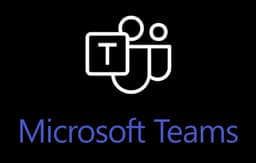How is Qluely undetectable?
Published on August 8, 2025
The Browser Bubble
Most online interviews happen right in your web browser (like on CoderPad, Google Docs, Zoom, or assessment platforms). Browsers are designed like secure bubbles – what happens inside one tab generally can't see or mess with anything outside of it. This is called "sandboxing," and it's a core security feature.
Think of the interview website running in a browser tab. It can show you the assessment and run its own scripts, but it's walled off from the rest of your computer. It simply doesn't have permission to peek at other apps you might be running.
What Interview Platforms Can See (Inside the Bubble)
Within their own tab, interview platforms can use browser features to monitor some things:
- Losing Focus / Switching Tabs: They know if you click outside the browser window or switch tabs. But they don't know what you switched to.
// They can detect this... window.addEventListener('blur', () => { console.log('User looked away from the tab!'); }); - Pasting Content: They can tell if you paste something into the interface, potentially flagging large or frequent pastes.
// ...and they can detect this. input.addEventListener('paste', (event) => { console.log('Paste detected!'); }); - Webcam Monitoring (Sometimes): Some platforms might use your webcam to monitor eye movement, flagging excessive looking away.
- Screen Sharing (If Requested): If you're asked to share your screen via Zoom, Meet, or the platform itself, they can see what you choose to share.
What They Cannot See (Outside the Bubble)
Crucially, because of the browser sandbox and how operating systems work, these platforms cannot reliably:
- Know What App You Switched To: When you lose focus (the `blur` event), the browser gives no information about which other application became active.
- Scan Running Apps: There's no way for a website to get a list of other programs running on your computer. This is a fundamental OS security boundary.
// This CANNOT be done from a webpage! function getRunningApps() { // No browser API exists for this! return navigator.runningProcesses || []; } if (getRunningApps().includes('SomeApp.exe')) { // Impossible check } - Read Other App Memory: Accessing the memory of other applications is strictly forbidden by your operating system for security reasons.
- Track Your Every Click/Keystroke Globally: They can only see clicks and keys typed *inside* their own browser tab, not system-wide.
- See Invisible Native Apps During Screen Share: While screen sharing shows your desktop, applications designed to be hidden (like Qluely) won't appear in the shared view or screenshots.
Why Qluely is Different & How It Counters Detection
Qluely isn't a browser extension; it's a separate native desktop app. This fundamental difference is key to avoiding detection:
- It Lives Outside the Bubble: The browser running the interview has no connection to Qluely and simply cannot see it or interact with it. It doesn't need to read browser memory because it operates independently with its own data.
- Invisible to Screen Sharing: The app utilizes specific operating system APIs and window properties that designate its window to be excluded from screen captures, recordings, and screen sharing sessions (like Zoom, Meet). This is a standard OS feature used by various overlay or privacy-focused applications, not a browser hack.
- Webcam / Eye Tracking Counter: You can use keyboard shortcuts (
⌘ + Arrow Keys) to move the Qluely window directly over the assessment area. This allows you to view solutions while appearing to look directly at the screen where the questions are displayed. - Uses Standard OS Features: Beyond the specific examples above, it generally works using normal, legitimate operating system functions, leaving no unusual footprint that typical browser-based monitoring could detect.
So, while platforms can detect simple events like pasting or clicking away from a tab, Qluely is architected to sidestep these checks and remain invisible to the monitoring methods available within a browser sandbox or standard screen share.
What About Desktop Proctoring Apps?
You might wonder: couldn't they just make you install a separate desktop app to monitor everything? In theory, yes. But reputable platforms avoid this because:
- It's a huge security risk (potential spyware).
- It raises major privacy concerns.
- It would destroy user trust.
That's why almost all online assessments stick to the safety of the browser sandbox.
The Bottom Line
Because online interviews run in secure browser tabs, and Qluely runs as a completely separate native application, standard detection methods simply can't see it. We designed it specifically with browser security limitations in mind.
Until the day that companies require you to download and install a separate desktop app, or migrate completely to in-person interviews, Qluely will work.






